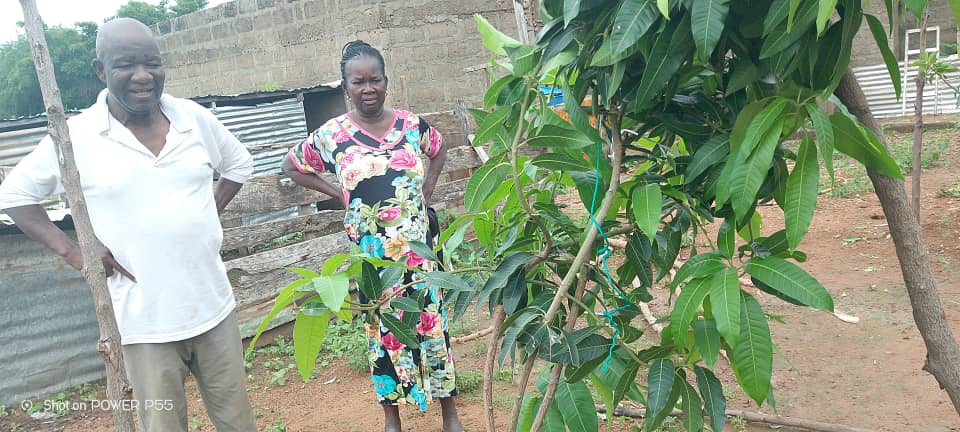|
Getting your Trinity Audio player ready...
|
Mr. James Baba Atugba, a retired staff of the Irrigation Company of Upper Region (ICOUR) in the Upper East Region, has underscored the need for Government to integrate tree growing as a requirement in granting permit to people to build.
Mr Baba made the call when the staff of Our Lady of Mercy Community Services (OLAM), an NGO, embarked on a field visit to inspect the survival rate of 300 grafted mango seedlings that were distributed to 100 households in some selected communities in the Kassena-Nankana Municipality in the year 2023.
The initiative which realised more than 70 per cent survival, was part of the effort to help combat climate change and to support household livelihoods.
He stressed that if such a law were passed and the Assemblies made to enforce it, it would become mandatory for many households in the country to grow trees and take good care of them.
He stated that one of the best strategies to combat climate change was to target households in communities and urged government and other stakeholders to adopt the model deployed by OLAM in combating climate change in the Kassena-Nankana Municipality.
He said that out of the three mango seedlings given to him, two survived, along with others he planted around his house.
Mr Derick Zakariah, a Public Health Student of C.K. Tedam University of Technology and Applied Sciences, who spoke on behalf of the mother, one of the beneficiaries, stated that trees played a key role in the survival of human beings.
He cited for instance that apart from its medicinal benefits and addressing climate values, trees also provided shade, served as windbreak, and protected buildings.
Mrs Atugba Kapuri, another beneficiary, thanked the NGO for its Climate Change intervention and said that the project that was launched last year had whipped up the interest of many households in the area who were growing trees.
She indicated that the grafted mango seedlings that were distributed by the NGO last year were growing well and expressed optimism that it would not only help combat climate change but would also help to empower the beneficiary households with economic livelihoods in future.
Speaking to the media after the field visit, the Executive Director of the NGO, Mr. Emmanuel Atiiga, expressed happiness about the survival rates of the grafted mango seedlings.
“We will continue to monitor and to provide technical support to the beneficiaries to ensure that the trees grow to maturity to provide economic livelihoods to the beneficiaries,” he indicated.
He explained that the essence of providing each household with the grafted mango seedlings last year to transplant in their various homes was to ensure that the planted seedlings grow to produce fruits while preserving the environment and addressing climate change issues.
He added that the annual project had already developed a database of the beneficiary households and will monitor periodically to ensure the trees were properly cared for.
“The next phase of the project will be to distribute 1,300 seedlings targeting 300 households before the close of this year 2024. “We intend to add to the mango seedlings, coconuts, oranges, and palm tree seedlings,” he added.
He thanked partners of the NGO, the Open Society Foundation Africa and Vastenactie-Belgium for their support over the years.
Source: GNA


